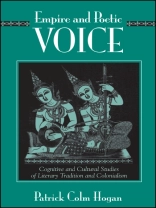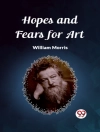In Empire and Poetic Voice Patrick Colm Hogan draws on a broad and detailed knowledge of Indian, African, and European literary cultures to explore the way colonized writers respond to the subtle and contradictory pressures of both metropolitan and indigenous traditions. He examines the work of two influential theorists of identity, Judith Butler and Homi Bhabha, and presents a revised evaluation of the important Nigerian critics, Chinweizu, Jemie, and Madubuike. In the process, he presents a novel theory of literary identity based equally on recent work in cognitive science and culture studies. This theory argues that literary and cultural traditions, like languages, are entirely personal and only appear to be a matter of groups due to our assertions of categorical identity, which are ultimately both false and dangerous.
Tabella dei contenuti
Acknowledgments
Introduction: Decolonizing Cultural Identity
1. Ideological Ambiguities of ‘Writing Back’: Anita Desai and George Lamming in the Heart of Darkness
2. Revising Indigenous Precursors, Reimagining Social Ideals: Tagore’s The Home and the World and Valmeki’s Ramayana
3. Subaltern Myths Drawn from the Colonizer: Dream on Monkey Mountain and the Revolutionary Jesus
4. Preserving the Voice of Ancestors: Yoruba Myth and Ritual in The Palm-Wine Drinkard
5. Outdoing the Colonizer: Homer, Virgil, Dante, Milton, Walcott
6. Indigenous Tradition and the Individual Talent: Agha Shahid Ali, Laila/Majnoon, and the Ghazal
Afterword: ‘We Are All Africans’: The Universal Privacy of Tradition
Notes
Glossary of Selected Theoretical Concepts
Works Cited
Index
Circa l’autore
Patrick Colm Hogan is Professor of English and Comparative Literature at the University of Connecticut. He is the author and editor of many books, including (with Lalita Pandit)
Literary India: Comparative Studies in Aesthetics, Colonialism, and Culture and
Colonialism and Cultural Identity: Crises of Tradition in the Anglophone Literatures of India, Africa, and the Caribbean, both published by SUNY Press.












